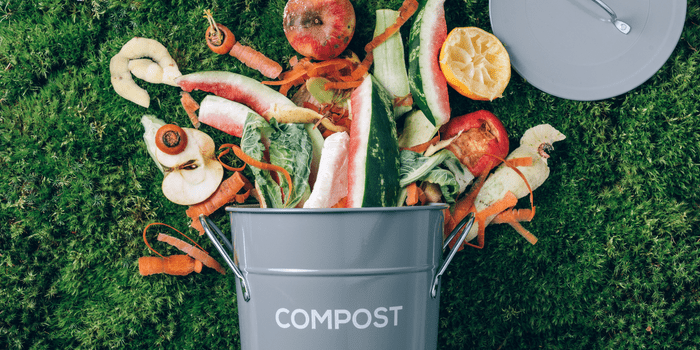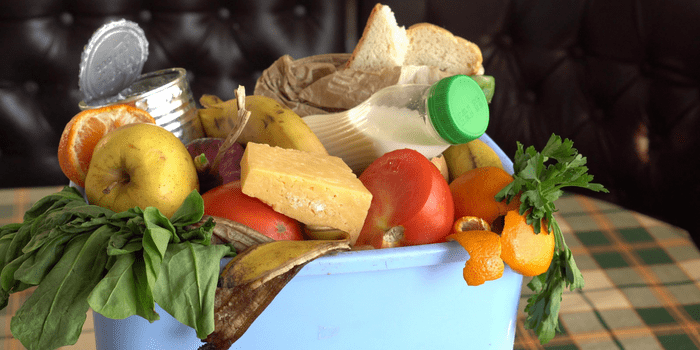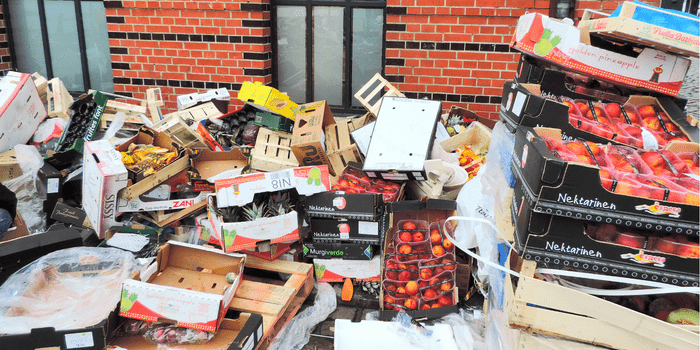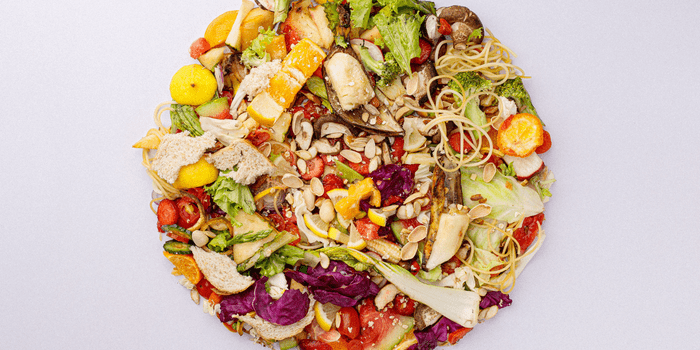Food waste is a huge issue in the United States. In fact, it is estimated that around 40% of all food produced in this country ends up in the trash. This is not only bad for the environment, but it’s also bad for your wallet! In this blog post, we will discuss some ways that you can cut down on food waste in your home and save money.
1. Plan your meals ahead of time and only buy what you need.
One way to cut down on food waste is to meal plan. This may seem like a lot of work, but it can actually save you time and money in the long run. By planning out your meals for the week, you can ensure that you are only buying what you need and that nothing goes to waste.
2. Use leftovers!
Any cook knows that leftovers can be a valuable asset in the kitchen. With a bit of creativity, they can be transformed into new and delicious dishes. For example, leftover roast chicken can be used to make chicken pot pie or chicken salad. Leftover rice can be fried with eggs and vegetables to make a tasty stir-fry. And leftover pasta can be turned into a hearty soup or a cheesy casserole. In fact, almost any food can be given new life with a bit of imagination. So next time you have leftovers, don’t let them go to waste. Put them to good use and create a delicious new meal.
3. Store food properly in the fridge or pantry to prevent spoiling.
One of the main reasons why food gets wasted is because it spoils before we have a chance to eat it. To prevent this from happening, it’s important to store food properly. Make sure to wrap meat and cheese tightly and store them in the coldest part of your fridge. Fresh fruits and vegetables should also be stored in the fridge, but they will last longer if they’re stored in the crisper drawer. And when it comes to pantry staples like flour and sugar, be sure to store them in airtight containers to keep them fresh for longer. By taking proper care of your food, you can prevent it from going bad and reduce food waste in your home.
4. Donate unopened or non-perishable food to a local food bank.
If you have food in your pantry that you know you won’t use, consider donating it to a local food bank. Most food banks accept non-perishable items like canned goods, rice, and pasta. And if you have unopened food that is past its expiration date, many food banks will still accept it as long as it’s not expired by more than six months. So before you throw away food that you don’t want, think about donating it to help those in need.
5. Compost food scraps to create nutrient-rich soil for your garden.

Another great way to reduce food waste is to compost food scraps. This is a great way to recycle nutrients back into the earth and create rich, fertile soil for your garden. To start composting, you’ll need a bin or container to store your food scraps in. You can also buy a composter if you want to get serious about composting. Then, simply add your food scraps to the bin and wait for them to break down into nutrient-rich soil. It’s that easy!
6. Educate your family and friends about food waste and how to reduce it.
Want to help reduce food waste? Start by educating your family and friends about the problem. Here are a few facts that will help get the conversation started:
- It takes a lot of resources to grow, process, and transport food—so when we throw it away, we’re wasting more than just the food itself.
- Trash decomposes in landfills, releasing methane, a greenhouse gas that’s much more potent than carbon dioxide.
- In the US, we throw away 40% of our food each year—that’s $165 billion worth of wasted grub.
Pretty staggering, right? Now that you have their attention, you can share with them a few simple ways to reduce food waste you learned from this article!
7. Join a local community garden to get more fresh produce.
If you’re looking for a way to reduce food waste and eat more fresh produce, consider joining a local community garden. Community gardens are plots of land where people can grow their own food. They’re usually located in parks or vacant lots, and anyone is welcome to join. Once you become a member, you’ll be assigned a plot of land to garden. You can then plant whatever you’d like and tend to your plants however you see fit. Not only will you get to enjoy fresh, homegrown produce, but you’ll also get to meet new people and learn about sustainable gardening practices.
What is Food Waste?

Food waste is defined as “any food substance, whether incorporated or unincorporated, which is unwanted and discarded.” This can include anything from uneaten leftovers to spoiled produce to trimmings from meat and fish processing. Unfortunately, food waste is a global problem. Here are some facts about food waste to think about:
- In the United States alone, approximately 30-40% of the food supply is wasted each year.
- The average person in the U.S. wastes between 95-115 pounds of food each year.
- In Europe, 88 million tons of food are wasted annually.
- Globally, we throw away one-third of all the food we produce each year.
Why is Food Waste a Problem?
How did we become a society that wastes so much food? Well, there are a few reasons. For one, we have this “all-or-nothing” mindset when it comes to food—we either finish the whole thing or toss it. This is especially true with pre-packaged and prepared foods. We also tend to buy more food than we need and allow perfectly good foods to go bad because we neglect them in the back of the fridge. Moreover, grocery stores and restaurants play a role in contributing to the problem by overstocking shelves and tossing perfectly good food because it doesn’t look “Instagrammable” enough.
But why should we care? After all, it’s just food, right? Well, actually, no. When we waste food, we’re also wasting all of the resources that went into producing that food—water, land, labor, energy, etc. Plus, when organic matter decomposes in landfill conditions (i.e. without oxygen), it emits methane gas, which is a leading contributor to climate change. So yeah, maybe we should start caring a little bit more about all this wasted food.
How Does Food Waste Affect The Environment?

You know those times when you let that carton of milk sit in the fridge just a little too long and end up having to pour it down the drain? Or when you make a big pot of soup but can’t finish it all so the rest goes in the trash? We’ve all been there. But what you may not realize is that those seemingly innocuous actions have a much bigger impact than you might think. In fact, food waste is one of the leading causes of environmental degradation. Here’s a closer look at how food waste affects the environment—and what we can do about it.
The Landfill Problem
One of the most obvious ways that food waste negatively impacts the environment is by taking up space in landfills. When organic material like food scraps decomposes, it releases methane—a greenhouse gas that’s 21 times more potent than carbon dioxide. Methane is a major contributor to climate change, so limiting food waste is crucial if we want to reduce our collective footprint.
The Water Problem
Another way that food waste harms the environment is by polluting our water supply. Every year, billions of pounds of perfectly good food end up in landfills where it rots and emits methane gas (as we just discussed). But methane isn’t the only pollutant released by decomposing food—nitrogen and phosphorus are two others. And when these pollutants leach into groundwater or surface water, they can cause all sorts of problems like algal blooms, fish kills, and even human health issues.
The Pesticide Problem
Food waste also takes an indirect toll on the environment by contributing to pesticide pollution. According to the USDA, about 20 percent of the pesticides applied to crops are lost to evaporation, wind drift, or runoff—and that doesn’t even include those pesticides that are deliberately sprayed onto fields as part of pre-harvest applications (aka “desiccants”). When these chemicals enter our waterways, they can wreak havoc on aquatic ecosystems and potentially cause human health problems.
Food Waste Awareness: Final Thoughts

The next time you’re about to throw away some leftover broccoli or that last slice of pizza, think about how much money and resources went into producing that food—and how many people around the world are going hungry right now. Trust me, your future self will thank you for eating those leftovers! And who knows? Maybe you can even help put a dent in this global problem one meal at a time.
Stop food waste day in 2022 was on September 29th.
Next year it’ll be on Wednesday, 26 April 2023.

Iryna wants to make this world a better, greener place with less waste. Her mission is to protect the planet from plastic pollution by bringing awareness to this global crisis through her website. Send her an email to learn more about her mission and how we can help!



